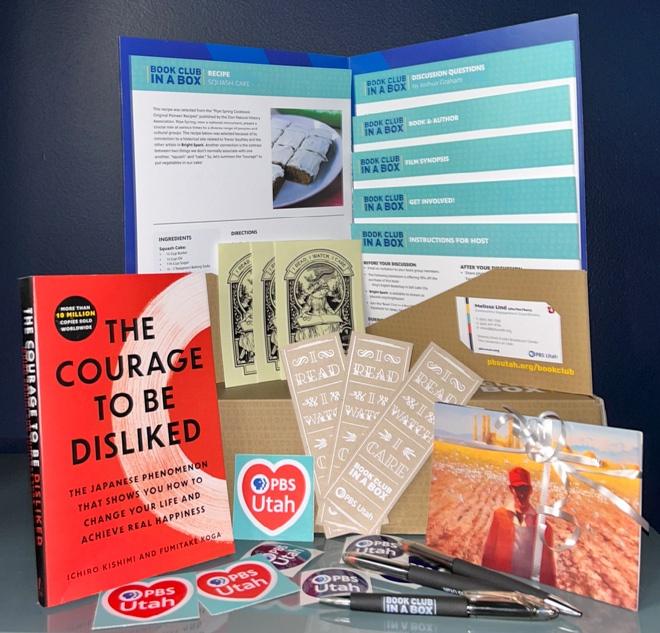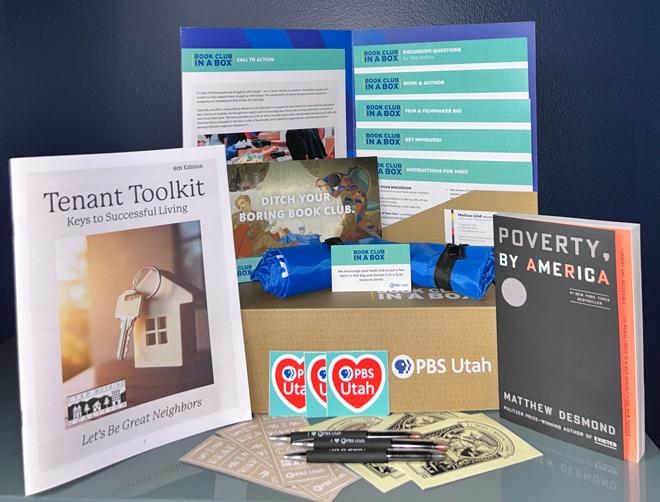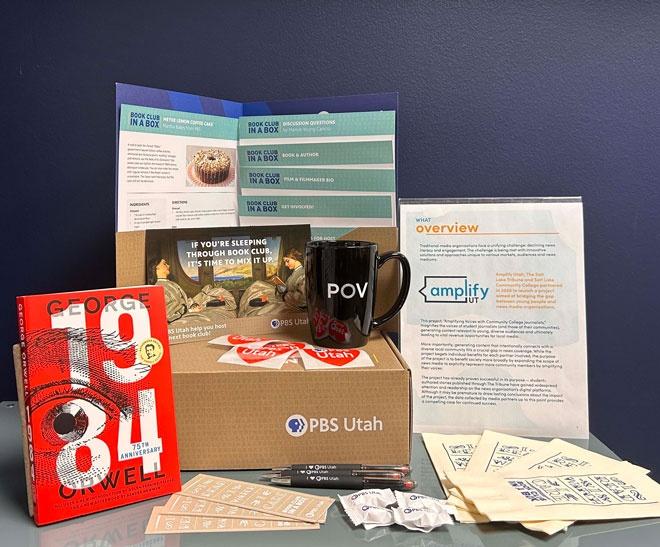The Authentic Spark Box
Book | The Courage to Be Disliked, by Ichiro Kishimi & Fumitake Koga
Film | Bright Spark: The Reconciliation of Trevor Southey

Bright Spark: The Reconciliation of Trevor Southey and The Courage to Be Disliked offer contrasting yet complementary perspectives on personal growth and acceptance. The documentary explores the life journey of Trevor Southey, a renowned artist who grappled with his identity and cultural expectations. The film delves into the complexities of self-discovery and the reconciliation of one's past with their present. It emphasizes the importance of embracing individuality and overcoming societal pressures to find fulfillment. The Courage to Be Disliked is a philosophical discourse presented in the form of a dialogue between a philosopher and a young man. The book challenges conventional beliefs about happiness and freedom, advocating for the acceptance of oneself and others. It encourages readers to let go of past traumas and societal expectations in favor of living authentically.
While Bright Spark discusses personal struggle and triumph, The Courage to Be Disliked provides a theoretical framework for understanding and implementing change in your life. Both works emphasize the importance of self-acceptance and the liberation that comes from embracing one’s true self. Through this box you will be challenged to confront your inner conflicts, embrace your uniqueness, and discuss what it means to live authentically.
WATCH FILM
The Poverty Paradox Box
Book | Poverty, by Matthew Desmond
Film | A Home of Their Own

Poverty and homelessness have been compared to the ‘chicken and the egg’ paradox; which came first? Matthew Desmond's book, Poverty, By America discusses how systemic inequalities and exploitation by the affluent contribute to poverty. The documentary, A Home Of Their Own, underscores the urgency of addressing these issues, as local families grapple with the traumatic experience of homelessness, compounded by factors like poverty and domestic violence. Both the book and the film delve into the multifaceted issue of poverty and homelessness, shedding light on the complexities that perpetuate these struggles.
The Poverty Paradox has become increasingly relevant as more and more families are struggling to keep a roof over their heads and food on the table. By examining the root causes and sharing personal stories, both the book and the film advocate for collective action and policy change to address homelessness and poverty, resonating with the challenges faced by families in Utah and beyond.
Your book club will embark on a journey to unearth the fundamental origins of homelessness and poverty. Together, you will explore not just the symptoms, but the roots of these societal issues. You will question whether addressing poverty alone can eradicate homelessness, or if resolving homelessness is the key to alleviating poverty. Are these intertwined challenges a puzzle with a solution, or a paradox that defies resolution? Challenge your assumptions and seek transformative insights as you confront this complex conundrum head-on.
WATCH FILM
Media & Misinformation Box
(Just a few left!)
Book | 1984, by George Orwell.
Film | While We Watched

This year, the book 1984 turns 75. Arguably George Orwell’s most famous and enduring work, the dystopian novel feels almost prophetic amid today’s swelling distrust of news media and journalism in favor of social media echo chambers and repositories of disinformation designed to deliberately deceive and alter the meaning of “truth.”
Similar themes play out in Vinay Shukla’s 2022 While We Watched, which follows Indian television journalist Ravish Kumar as he battles a commitment to reporting accurate and balanced information alongside the spread of misinformation and threats of violence in an increasingly contentious political environment. While Orwell himself classified his book as satire, he prophesied that “something resembling [his fictional society] could arrive” and “that totalitarianism, if not fought against, could triumph anywhere.”
This box explores modern-day media literacy and misinformation and the impact in Utah, across the our country and throughout the world as digital channels become more pervasive and make it increasingly difficult to parse out fact from fiction. Your book club will contemplate and examine parallels between the fictional world laid out in Orwell’s 1984, the very real setting Kumar faces as he fights to deliver accurate information to viewers, and what you see and experience in your own daily interactions with news and social media in the United States.
PLEASE NOTE: The book included in this box contains profanity and graphic descriptions. Book Clubs should consider the sensitivities of their participants before registering.
WATCH FILM
Home & Heritage Box
Book: Wake the Others, by Willy Palomo
Videos: Aloha Iosepa, Mana, and Sistership
Immigration, religion, belonging, and the merging of all three, shape the identity of so many Utahans who came to the state to find a home away from their native lands. They can find this in the church or in art or on the pitch. Both Willy Palomo’s book Wake the Others and the three documentary films produced by local high school filmmakers explore the what happens at the intersection of immigration, religion, and belonging and how this has shaped them, their families, their identities.
Your book club will discuss why cultural tradition carried across oceans, mountains, and generations is so important to families in Utah. You’ll explore the notion of home and how that changes for each one of us as we migrate from one place to another. Have you had to make a major move in your life? What prompted that move? Was it religion? Family? Work? As we comprehend the challenges and triumphs of the people in the short films as well as the book, do we have a renewed perspective on our neighbors who have different cultural backgrounds? Have we learned something new about ourselves?
Please note: This book contains profanity and graphic descriptions. Book Clubs should consider the sensitivities of their participants before registering.
WATCH FILMS
In partnership with:


